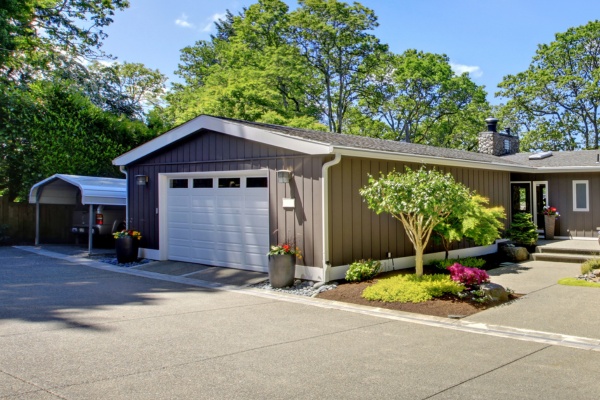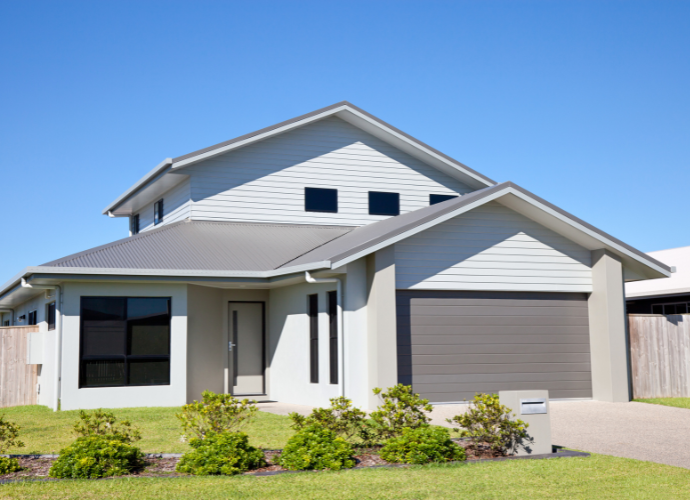Is your garage door acting up? From frustrating malfunctions to the need for a complete overhaul, dealing with garage door issues can be a real headache. But don't worry! This comprehensive guide will equip you with the knowledge and resources to tackle any garage door problem, whether you're a DIY enthusiast or prefer professional help. We'll cover everything from understanding your garage door's components to choosing the right opener and knowing when to call for expert garage door repair.
Understanding Garage Doors
Understanding the basic components of your garage door system is the first step to effective troubleshooting and maintenance. A typical garage door comprises several key parts working in concert: the door panels themselves (often steel, wood, or composite), the tracks guiding the door's movement, the rollers that run along those tracks, the springs providing counterbalance, the opener mechanism (electric or manual), and crucial safety sensors (photo eye sensors). These components work together to ensure smooth, safe operation. Neglecting regular maintenance of these parts, especially the springs, can lead to serious problems, costly garage door repair, and even safety hazards. Regular lubrication and inspections are vital for the longevity and smooth operation of your automatic gate opening system.
Components of a Garage Door
Let's delve deeper into the individual parts. The garage door opener is the brain of the operation, controlling the movement of the door via a motorized system. The safety sensors, often located near the floor, use infrared beams to detect obstructions and prevent the door from closing on anything, ensuring safety for people and pets. Regular checks on these sensors are crucial for your garage door's safe operation. Problems with the opener's logic board, motor, or remote control can also lead to malfunctions, requiring professional garage door repair services. A damaged sensor, whether misaligned or blocked, can also cause problems.

Common Garage Door Problems
Garage doors, like any mechanical system, are susceptible to malfunctions. Common issues include the door not opening or closing completely, making unusual noises (squeaking, grinding), or the opener malfunctioning. These problems can range from simple fixes to more complex issues demanding the expertise of professional garage door repair technicians. Ignoring these problems can lead to further damage and more significant repair costs in the future. Quick identification and appropriate action are crucial for maintaining your garage door system's efficiency and safety.
Troubleshooting Issues
Many problems can be tackled with some basic DIY knowledge. A simple issue might be a misaligned sensor, easily adjusted with a little patience and a screwdriver. But if the problem involves electrical issues, significant damage to the garage door parts, or complex mechanical malfunctions, calling a professional garage door service is always recommended. Attempting complex repairs without the necessary expertise could lead to further damage or even personal injury. Remember safety should always be your https://griffinztmy426.fotosdefrases.com/conquer-garage-door-troubles-your-2025-guide-to-repair-installation-amp-maintenance top priority when dealing with garage doors.
Garage Door Repair Services
Sometimes, a DIY approach isn't sufficient. That's when you need the skills of experienced garage door repair professionals. Choosing a reputable service provider involves considering several factors: their experience, their customer reviews, the warranty offered on their repairs, and, of course, the cost of their services. Finding a trusted garage door repair company that offers emergency repair, same-day repair, and affordable repair options provides peace of mind. A professional is your best bet when dealing with major malfunctions, spring replacements (a task best left to trained professionals), or significant damage.

When to Call a Professional
Several scenarios warrant calling a professional: if the springs are broken, the door is severely damaged, or the electrical system isn't functioning correctly, immediate professional help is crucial. Don't risk injury or further damage by trying to tackle advanced repairs yourself; instead, seek out expert help and get a garage door repair quote from multiple providers for comparison. These situations often require specialized tools and expertise.
DIY Garage Door Maintenance
Preventative maintenance is key to keeping your garage door running smoothly and avoiding costly repairs down the line. Regular checks on the tracks, rollers, and springs are vital. Lubricating moving parts can significantly reduce wear and tear, keeping your garage door operating efficiently and quietly. Additionally, cleaning sensors and making sure they are properly aligned is a crucial step in preventative maintenance, thereby ensuring the automatic reverse mechanism works as intended and enhances your automated door security features. These regular checks are straightforward and can save you money in the long run.
Maintenance Checks and Safety Measures
Regular lubrication (using a high-quality garage door lubricant) on moving parts can extend the life of your garage door considerably. Cleaning the tracks of any debris that could cause binding is crucial, too. Checking the alignment of the door and making sure that the door panels are free of damage (cracks, warping) is also vital for its proper and safe functioning. Regular visual inspections of every part of the system can help you catch and address small problems before they escalate into large ones, saving you money in the long run. Ensure to perform all checks following safety protocols.
Choosing the Right Garage Door Opener
Selecting the right garage door opener depends on your needs and budget. Consider the type of opener (belt drive, chain drive, direct drive), its features (smart features, quiet operation, battery backup), and its overall reliability. Researching different brands and reading reviews can help you make an informed decision. The right opener not only improves convenience but also contributes significantly to the overall longevity and smooth operation of your garage door system. Factors to consider include the weight and size of your door, as well as the frequency of use.
Types of Openers
Various opener types are available, each with its pros and cons. Belt drive openers are typically quieter than chain drive openers, while direct drive openers offer the most precise and smooth operation. Smart features, such as smartphone control and integration with other smart home devices, provide enhanced convenience. Some models also have safety features like automatic reverse function and powerful battery backup systems. Your choice should align with your needs and budget while prioritizing safety.
Frequently Asked Questions
This section addresses common questions related to garage door issues and maintenance.
Common Inquiries Answered
- What should I do if my garage door won’t open? First, check the power supply and the safety sensors. If the problem persists, contact a professional for repair. How often should I conduct maintenance on my garage door? Aim for a thorough inspection and lubrication every three to six months. Why is my garage door sensor blinking red? This usually indicates an obstruction in the sensor's path. Clear the obstruction or check for misalignment. What are the signs that I need a new garage door opener? Signs include unusual noises, slow operation, frequent malfunctions, and a lack of safety features.
In conclusion, maintaining a functional and safe garage door involves understanding its components, performing regular maintenance, knowing when to call a professional, and choosing the right opener for your needs. By following the advice in this guide, you can keep your garage door operating smoothly for years to come. If you're facing a persistent problem, don't hesitate to contact a qualified garage door repair service!